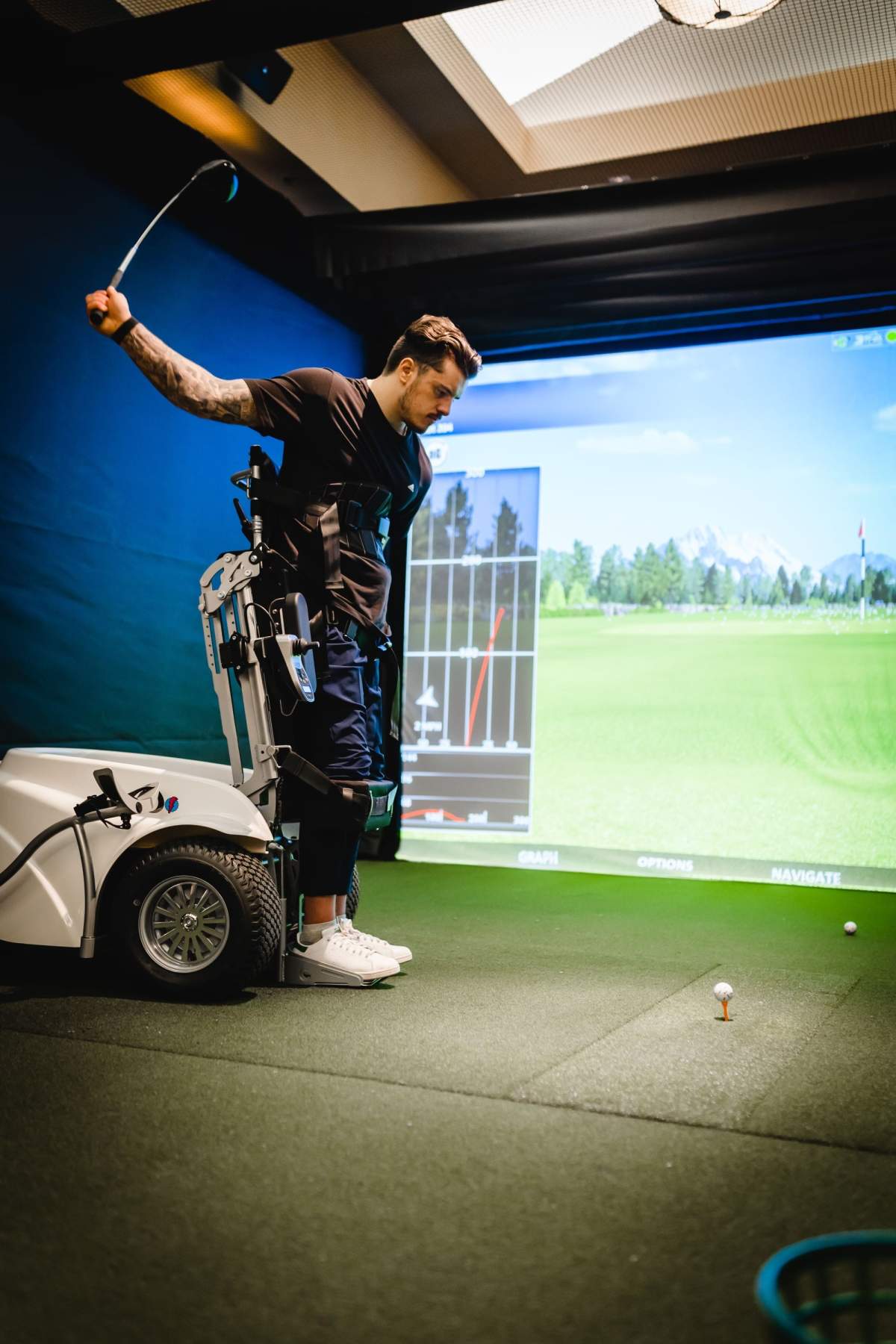Ryan Straschnitzki isn’t just motivated by his goal to win Paralympic gold for Canada in hockey.

The 23-year-old can often be found on the links and in golf simulators, still trying to perfect his swing.
“I always found that the power of sport was so incredible. It changes lives — both mentally and physically,” Straschnitzki said after a summer skate with Canada’s para-ice hockey team.
“Obviously, hockey is a huge part of my life, but golf is also there as well. I remember using the ParaGolfer, and I’m like, ‘Man, this is incredible. I wish everyone could use it.'”
It’s a thought that has stuck with the adaptive sports advocate since he got to test drive the ParaGolfer device at Heritage Pointe Golf Club in Alberta last winter.
The sit-to-stand mobility aid allows golfers to put weight on their lower body and swing the club from a standing position.
When in a sitting position, the user can navigate rolling fairways, get into the rough and traverse into the most treacherous of bunkers.

Get breaking National news
“It’s like a mini golf cart that you can sit in,” Straschnitzki explained.
“So someone who has trouble standing, or for someone in a wheelchair, they can stand up and not only put weight through their legs, but allow them to kind of get that golf motion and stance back and get into the swing of things. ”
While undoubtedly handy for wheelchair users, the ParaGolfer is also designed for people who have multiple sclerosis, ALS, cerebral palsy and generally limited mobility.
Unfortunately, there are only two ParaGolfers in Western Canada.
Now, the Straz Strong Foundation and Synaptic Neuro Rehabilitation Centre aim to raise $100,000 through a charity golf tournament to bring the groundbreaking piece of adaptive equipment to Calgary.
Straschnitzki’s goal is for the ParaGolfer to be available to any golfer who needs it, at any course in the city.
The tournament will have a ParaGolfer on hand for people to try it out, as well as other adaptive equipment demonstrations and educational opportunities to raise awareness of the impact of neurological and physical disabilities.
Any extra money raised will support access to integrative rehabilitation programs, adaptive sports and equipment.
“Sometimes people don’t get that access and it can be diminishing on their life,” Straschnitzki said. “I’ve always felt that there’s always something you can make work, and, you know, the road is never over.
“I’m hoping to incorporate that into this golf tournament and into the foundation to allow people to know that there’s opportunity out there for them.”
Registration for the first-ever D.R.I.V.E. tournament is open to the public until Sept. 4.








Comments
Want to discuss? Please read our Commenting Policy first.